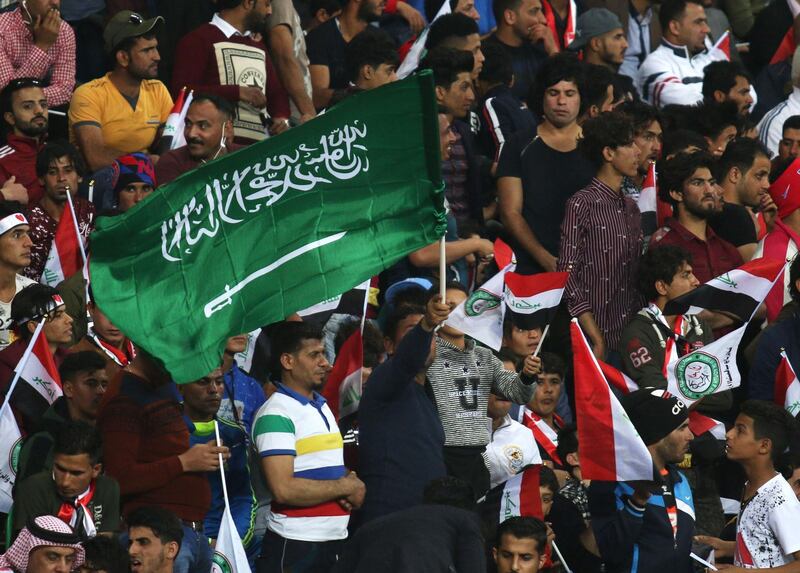The last time Iraq and Saudi Arabia met on an Iraqi football pitch, the year was 1979 and neighbouring Iran was in the throes of its turbulent revolution. On Wednesday footballers from the two countries again took to the field in an inspirational display of sporting diplomacy that captivated Iraq and the watching world. An astonishing 60,000 fans packed the stadium in Basra, with authorities handing out Saudi flags to supporters pouring into the stands. The result was a sea of green, red, white and black, a stirring sight in a country which is hoping a ban on full internationals on home turf will be lifted. An Iraqi social media campaign welcoming the away team with the message "Greens, you're at home" crystallised the power of sport to unite nations and heal divides. The match may have lasted a mere 90 minutes but its significance will be felt long afterwards as a powerful symbol of harmony between two of the region's largest countries.
Sport is a powerful force for co-operation and peace. At the Pyeongchang Winter Olympics last month, North and South Korea made historic diplomatic strides. Wednesday’s football match is the latest olive branch extended by Riyadh as part of a process to boost diplomatic and economic ties with Iraq after the fall of Saddam Hussein, while stemming the malign influence of Iran's Revolutionary Guards Corps. Those ties go deep. Saudi Arabia opened an embassy in Baghdad in 2016, even as the coalition was still fighting ISIL, to show solidarity for the regional alliance. Saudi Foreign Minister Adel Al Jubeir followed with a visit to Baghdad last year.
There is extra pertinence for Iraq beyond closer neighbourly ties. Given the strong reputation of Saudi Arabia's football team, which has qualified for this year's World Cup, there is great hope that the match will encourage Fifa to scrap its ban on full international matches in Iraq, first imposed after the 1990 invasion of Kuwait and temporarily lifted in 2011, only to be reinstated later. It was partly relaxed last December following the defeat of ISIL to stage friendlies. There will be strong hopes the scenes of comradeship this week will sway football's governing body in Iraq's favour when it makes a decision in a fortnight. Those heartwarming scenes are testament to Iraq's improving security situation and attempts to rebuild. As polarisation and violence drive a wedge between regional actors today, the display of sporting unity is truly inspiring.





